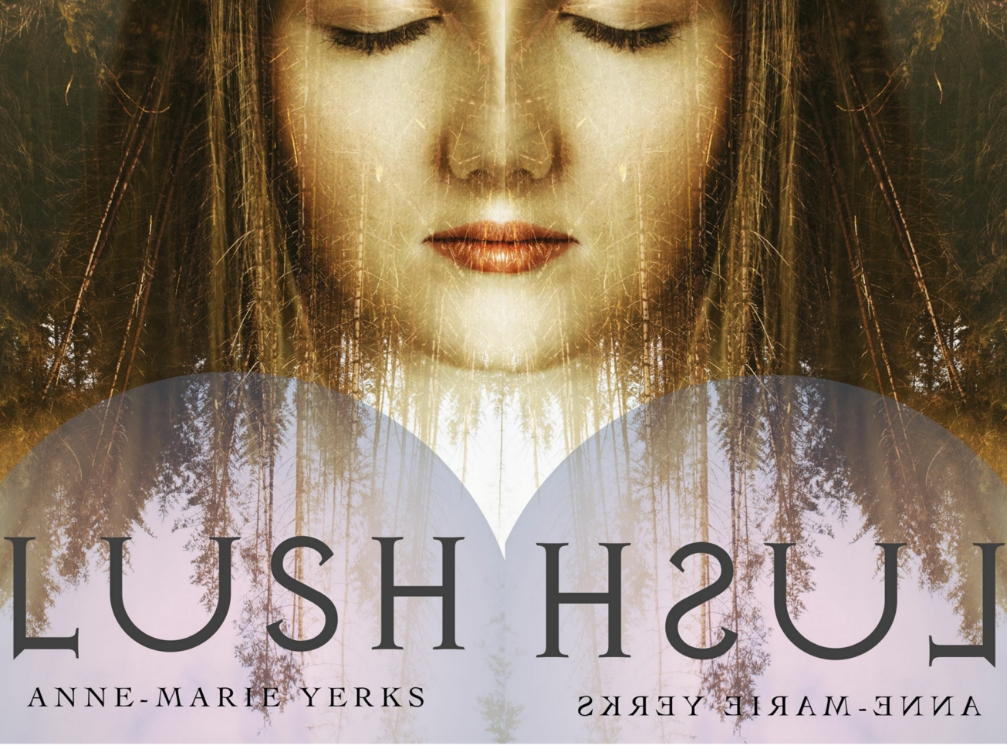Book Review: LUSH – Future in the Past

LUSH by Anne-Marie Yerks is a dystopian novel about an eighteen-year-old girl, Isla living in a reenactment community, Naudiz in future America. While she feels trapped in this town that is stuck in the past, she also feels obligated to take care of her father and brother. In her conflicted state, she finds herself as a cadet at the Center for Research of Ecological and Intellectual Advancement (CREIA) where researches are made to make composite humans. At this academy, she discovers dark secrets of CREIA and the world beyond Naudiz, as well as how the people of the modern world are not as free as Isla thought them to be.
While there are lots of aspects of this ‘future’ appears to me as completely fictional for our world, some of it, unfortunately, seem realistic. The future Yerks presents that repeats the mistakes of the past is a quintessence of our society and governments. It is revealed in the novel that due to pollution, there are increasing illnesses, as well as births with deformity. Instead of finding a solution to fix the mistake in question, as we always do, we try to replace the disrupted nature with artificiality. In this case, instead of finding a solution for pollution and diseases, the government work on composite humans. They also trick the public into their ways and turn every opportunity into dictating and of course, capitalism.
The idea of a future stuck in the past illustrates an important element of the human nature; we like to hide in the past, in the face of change. The past, as it already happened and known, feels comfortable, while change is always associated with discomfort. Especially in the case of a cruel future, past becomes a safe haven. As we like to escape to our memories of the past as individuals, Isla’s community has a collective experience of this escapism and shutting themselves away from modernity.
While I find those aspects of the novel successful, as well as the character development of Isla, from a lost child to a character that fights for her survival and future, I feel like there are a lot of things that are left out that makes the novel feel incomplete. There is a good amount of space to distant past and the future, while a lot of our present time is left out. Isla lives in a place that reenacts the 19th-20th century, while they live in the 22nd century. While we get a sense that terrible events had happened in between to lead to corruption in the 22nd century, that people felt safe living in the past, we are not thoroughly informed. There are references here and there expecting us to know. While because of the recent political environment, some things could be guessed, I would’ve liked to be given more information. As one of the visitors to their reenacting community says, ‘much of history is missing’. The first part of the book felt slow, while I finished the second half in a day. At some point, it becomes quite gripping. However, some of the events happening at times felt rushed.
While what’s done is done with this particular book, I do hope for a sequel, as a second book could complete what’s left out in this one and raise this one’s success rate. The time gets complicated in this one, as so much of its aspects – even outside of Naudiz – could feel outdated, at parts it gets ahead of time. A second (and maybe even a third following) could explain what led to that. A sequel and a prequel would both support the missing elements of the past and add to show the change that was coming when this book finishes. A clearance of time would benefit the story. I would also like to know more about Esme, Isla’s sister, her mother and Averitt, as they each appear to have interesting stories that I expected to hear more about and never got the chance. Even though I appreciate the story focusing on Isla and not overwhelming the story with romance, seeing Isla’s relationship with Averitt develop would particularly interest me. Another element that I would like to learn more about is the city life, as we only get a glimpse of it. She simply rushes in and out of the city.
Overall, I find this book hopeful, especially during these days in which the catastrophes and change frightens us but this novel’s ending note gives a message that change carries hope. As Shams Tabrizi says, ‘if you think “my life will be upside down”, don’t worry. How do you know that downside is not better than upside?’
Have a story to share? Contact us.
featherpen-blog@hotmail.com
Also, don't forget to follow us on Instagram!
@featherpenblog